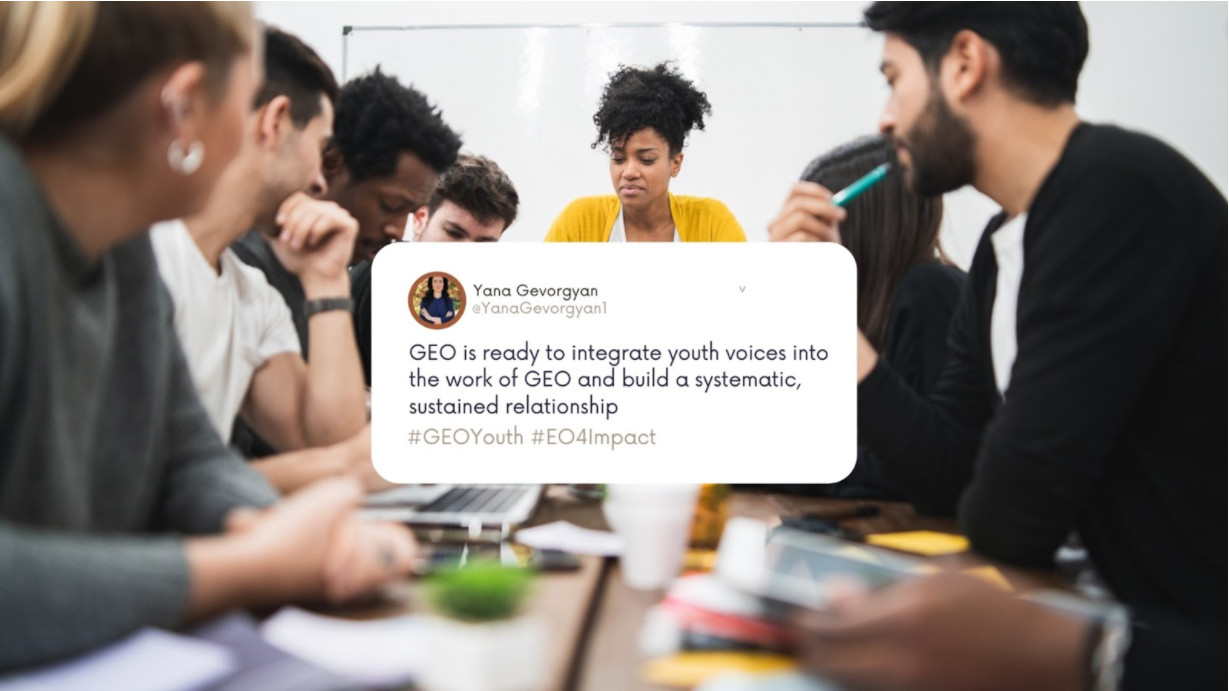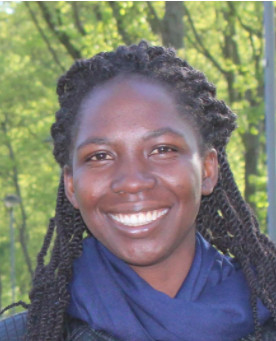Blog / Delali Kemeh / March 7, 2022


Young people around the world are taking action to mitigate and adapt to climate change. The Group on Earth Observations (GEO) values their contributions and is committed to making their voices heard and supporting their actions to make a difference through Earth observations. Through the Humanitarian OpenStreetMap Team (HOT), a GEO participating organization, the GEO Secretariat supported YouthMappers in Africa and sponsored their participation at the GEO Plenary in Kyoto. Youth involvement has included mentoring the Water Youth Network and young Earth observation specialists, and promoting the use of Earth observations at the ISPRS Student Consortium online meeting. Since 2018, the GEO community has mentored hundreds of youth from around the world through annual Indigenous Hackathons tailored to underrepresented communities. The GEO community invites young people to contribute to improving the availability, access, and use of Earth observations for a sustainable planet.
GEO organized its first ever youth track in parallel to GEO Week 2021 (November 22-26) under the theme ‘accelerating action with youth’.GEO Week is the annual meeting of GEO members, partners and stakeholders to discuss GEO's progress and plans related to Earth observations in support of international policy on global environmental and socioeconomic challenges.
The sessions designed for the youth track were intergenerational and focused on young people involved or interested in Earth observation tools and services. It brought together different generations working in research, science, and policy to share ideas and discuss opportunities for a mutually beneficial relationship between GEO and young professionals. The exchanges also highlighted success stories from other communities on how to engage young people to achieve common goals and include the voice of youth in the GEO community.
According to Yana Gevorgyan, Director of the GEO Secretariat, GEO is ready to ‘‘integrate youth voices into the work of GEO and build a systematic, sustained relationship”.
The first day of the youth track addressed perspectives on equality, diversity, and inclusion (EDI) with an open discussion on how a GEO Youth Community of Practice (COP) can promote the equal inclusion of young people from diverse backgrounds into GEO´s work.
The second day featured a cross-regional dialogue between the Americas and Africa, highlighting the need for greater equity in EO tools and services for historically and/or geographically disadvantaged groups. In the discussions, facilitating networking, internships, mentorships, conferences, and other opportunities for professional growth were identified as some of the ways GEO could leverage its networks both for its own benefit and for the benefit of young professionals.
Similar to the second day, the third day was dedicated to a cross-regional dialogue between Europe, the Commonwealth of Independent States, and Asia-Oceania. An important good practice from the substantive discussion was the role of the older generation in providing a solid foundation to attract, engage, and share their knowledge and experience with Earth observation tools and services with the younger generation.
The final day reflected the outcomes of the various sessions, noting that the GEO community is committed to EDI, that young people are enthusiastic, ready to learn and proactively build their capacities in EO tools and services. In addition, all participants are willing to leverage their strengths to collaborate on the vision and mission of GEO.
The youth track ended with the official launch of the GEO Youth CoP. It is envisioned that a GEO Youth CoP can help the GEO community and young people collaborate for mutual benefit across the GEO work programme and GEO engagement priorities. To achieve this, a GEO Youth Terms of Reference (ToR) has been developed for broad review. Volunteers will then be invited to participate and take on the associated tasksIf you are interested in contributing to GEO 's youth engagement efforts, please join the virtual meeting on March 24 at 1PM CET.
To join the GEO Youth Community of Practice, please fill out this form.
For more information, please contact secretariat@geosec.org
About the author

Delali Kemeh is the DRR Consultant working closely with the GEO Secretariat’s Disaster Risk Reduction (DRR) Coordinator; Rui Kotani. Since joining the secretariat on 1st May 2021, her primary responsibility has been to assist with targeted tasks around GEO’s DRR engagement priority and the GEO DRR Working Group. Delali brings to the GEO secretariat, her working experience with multiple international development agencies such as the United Nations Office for Disaster Risk Reduction (UNDRR), the United Nations Educational, Scientific and Cultural Organization (UNESCO), and the German development agency (GIZ) on pragmatic approaches in reducing climate exacerbated disaster risks. She has a joint masters in Environmental Risk and Human Security from the United Nations University - Institute of Environment and Human Security and the University of Bonn, Germany. Delali is also passionate about meaningful youth engagement in DRR and so has been meaningfully involved in intergovernmental processes on DRR at the African Union level. Her participation has been pivotal to the formation of the Africa Youth Advisory Board on Disaster Risk Reduction (AYAB DRR) of which she is its current chairperson. AYAB is the first board established under the AUC to meaningfully engage youth in DRR.
Thank you for your subscription to the GEO Week 2019 mailing list.